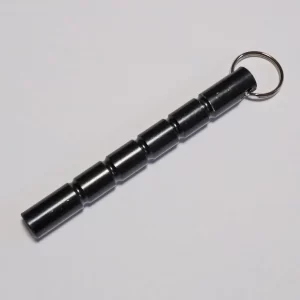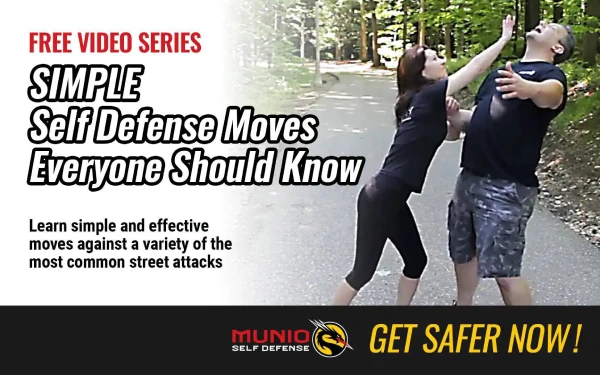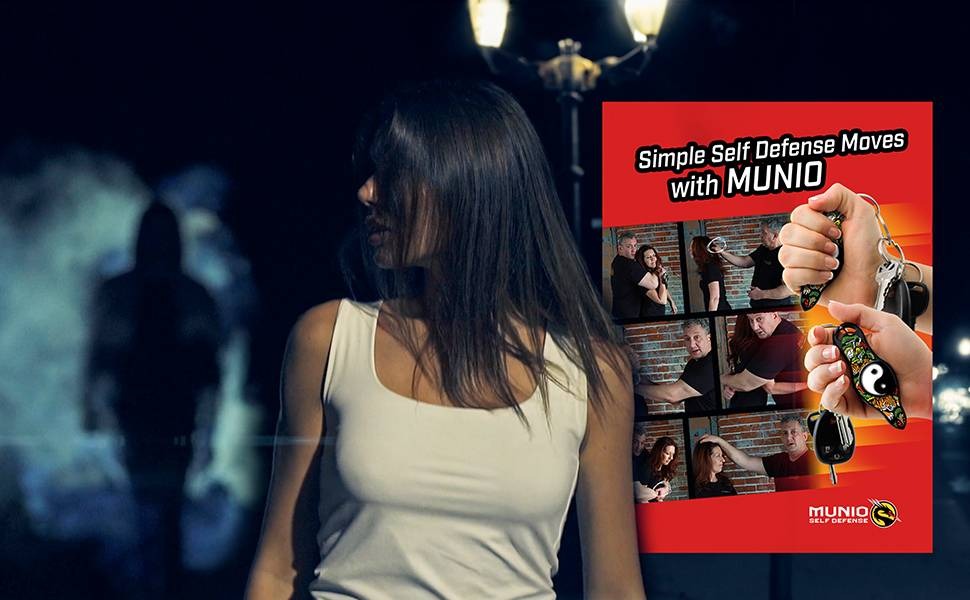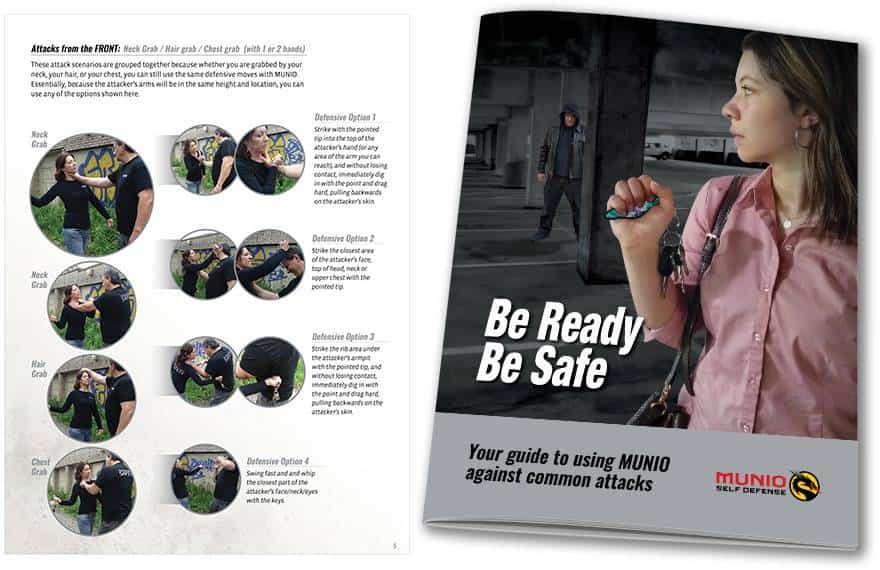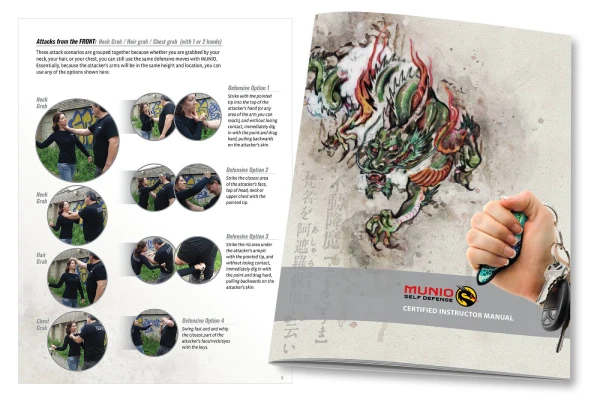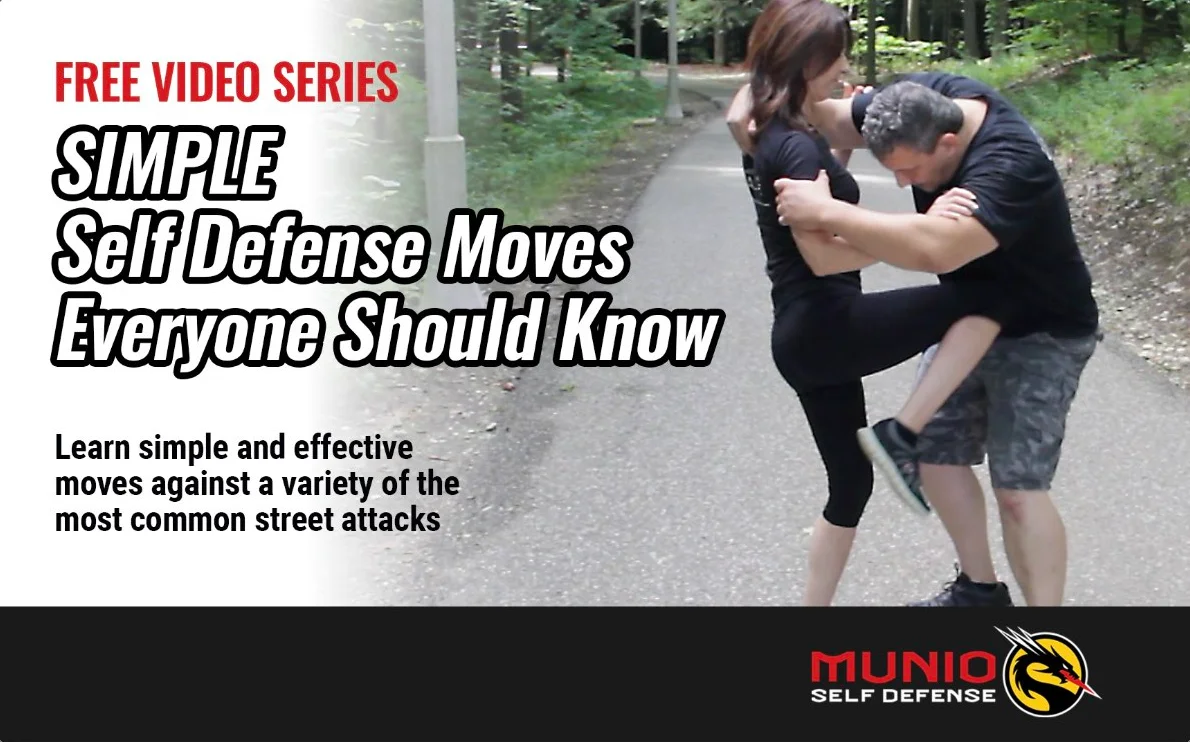If you are in a life-threatening situation or need help immediately, call the National Domestic Violence Hotline at 1-800-799-7233 or text “START” to 88788. This resource is accessible 24–7, and a live advocate will connect with you in real time.
In the United States alone, more than 10 million adults experience domestic or intimate partner violence each year. This can take the form of physical, sexual, verbal, or emotional abuse. In all of these cases, the impact is severe, traumatic, and often potentially fatal. But please know, you don’t have to stand for it.
“Abusive relationship signs can be difficult to recognize at first, but once you start to suspect that you might be in an abusive relationship, it’s vital to take action right away before it escalates into a crisis situation”, explains self-defense instructor Rachel Cheeseman.
With 34 years of martial arts training, 23 years of teaching self-defense, and experience as a legal advocacy volunteer at a domestic violence shelter under her belt, Rachel is committed to helping victims of domestic abuse. The first step, she says, is knowing abusive relationship signs. Keep reading to learn what to watch for, as well as advice on how to escape safely.

What Are the Signs of Emotional Abuse?
“Most of the time, signs of an abusive relationship present themselves very early on in a relationship, well before the victim recognizes their situation as abuse,” Rachel says. They might brush off concerns or make excuses for their partner’s behavior. They’ll look for reasons or justifications as a protective mechanism because they don’t want to admit the truth. Then inevitably, something serious occurs — either the victim or one of their children is hurt so badly that it leaves a mark or lands them in a hospital.
This is why she makes a point to emphasize the importance of recognizing emotional abuse. While often minimized, emotional abuse can quickly escalate into sexual and physical violence. If you’re noticing any of these signs, it’s important to exit the relationship as soon as possible before a strong attachment is formed.
What constitutes emotional abuse? This is a pattern in which someone tries to control another person with words or behavioral tactics to demean, criticize, embarrass, shame, or manipulate. Emotional abuse goes beyond normal conflict — it’s a repetitive, deliberate cycle that harms one’s mental health and self-esteem, which can leave victims feeling worthless.
If any of the following behaviors are familiar to you, take note. It’s entirely possible you’re in a potentially violent relationship.
- Placing unreasonable mandates or expectations on you
- Insisting that you prioritize their needs above your own
- Criticizing or berating your efforts, no matter what you do
- Invalidating your opinions, emotions, and experiences
- Dismissing how you recall events or perceive situations
- Subjecting you to humiliation or treating you as inferior
- Talking to you with constant sarcasm or condescension
- Starting unpredictable arguments or emotional outbursts
- Pointing out all your mistakes, failures, and imperfections
- Convincing you to shoulder the blame for their actions
- Monitoring your finances and who you spend time with
- Checking your emails, phone calls, texts, or social media
- Withholding affection from you as a form of punishment
- Tracking your location and activities outside the home
- Acting jealous whenever someone shows you attention
- Weaponizing your fears, needs, values, or pain points
- Calling you names like “sensitive,” “irrational,” or “crazy”
- Accusing you of unfaithfulness when you haven’t been disloyal
Physically Abusive Relationship Signs
The signs above can help you notice any red flags before your relationship becomes unsafe. Emotional abuse leads to trauma on its own, but it’s also a common precursor to more dangerous violence.
According to the CDC, about 41 percent of women and 26 percent of men have experienced and reported a violence-related impact during their lifetime by an intimate partner, including contact sexual violence, physical violence, and/or stalking.
“Some physically abusive relationship signs are obvious, while others are more subtle”, Rachel points out. She emphasizes how crucial it is to never ignore the signs below — in fact, it could be a matter of life or death. Here are some behaviors to look out for:
- Threats of violence against you, another person, or an animal for any reason
- Anger that often leads to punching walls and throwing or breaking objects
- Vacillating from affectionate one minute to explosive and aggressive the next
- Restraining you in order to prevent you from leaving to escape the outburst
- Having exhibited a past history of violence, even if you don’t see it right now
- Using force toward you or someone else (slaps, kicks, shoves, grabs, etc.)
- Inflicting repeated harm on you or someone else until it causes an injury
- Stalking you in public as a means to control, intimidate, or terrorize you
- Controlling your food, exercise, clothes, and other facets of your appearance
- Subjecting you to painful or demeaning sex without your affirmative consent
- Intrusive or sexual touching in public or without your permission
- Tricking you into sexual acts that you’re uncomfortable with
- Forcing you into a sexual encounter when you are unwilling to participate
- Patterns of cruelty toward animals, children, and other vulnerable beings
- Giving you reason to fear for your life (“If you leave, I’ll kill you.”)
How to Seek Help in an Abusive Relationship
“Once you’re at the point in your relationship where you’re seeing these abusive relationship signs, it’s already become hazardous to leave,” Rachel explains. You can’t just sit your partner down and break up with them. If they sense a loss of control, they will fight even harder to maintain it. The safest action is to leave quickly, secretly, and without any indication as to where you’ve gone. This is hard, but it’s necessary.
“If your relationship is still in the early stages, don’t wait until those initial red flags escalate into full-scale domestic violence. Break it off now before there’s an emotional investment”, Rachel urges. It will be much easier to leave.
On the other hand, once you share a strong connection with your partner, the situation has become dangerous and the solution isn’t so simple. “Seek immediate help at your local abuse shelter,” Rachel advises. This is what they’re there for.
“Don’t stay with a friend or relative”, Rachel says. The abuser will look for you in obvious places, which can endanger any loved ones who take you in. Shelters, on the other hand, are anonymous. These facilities will neither confirm nor deny whether you’re staying there. The exact location of shelter homes aren’t publicly available, and they’re secure as well as under surveillance. This makes shelters the safest resource to tap into until you can access more stable, permanent housing.
Surviving Domestic Abuse
Once you’ve exited the relationship safely, Rachel advises taking a self-defense class to reclaim your sense of confidence, empowerment, and security. Rachel recommends Krav Maga, an Israeli martial art, which focuses on practical, efficient techniques for real-world situations.
“Choose a self-defense program with both male and female instructors,” she says. An abuse survivor will benefit from being around healthy men she can trust, as well as strong women to show her what she is capable of.
“Many women will also benefit from carrying protection”, Rachel says. This can help keep them safe from ex-partners as well as give them peace of mind.
There are lots of everyday carry options out there these days. Rachel recommends the MUNIO Self-Defense Keychain. With multiple stylish designs to choose from, the MUNIO doesn’t resemble a weapon, but it’s highly effective in an attack, enabling users to react at a moment’s notice to disable an assailant.
“It’s become a core part of my self-defense curriculum for its simplicity,” Rachel says. “Anyone can use it, and you can take it anywhere, even on an airplane.”
Get the Help You Need
Getting out of an abusive relationship may be one of the hardest things someone can do, but it’s necessary and must be done immediately if there are any indications of potential or active violence. If you need help, call the National Domestic Violence Hotline at 1-800-799-7233 and reach out to your local domestic abuse center.




